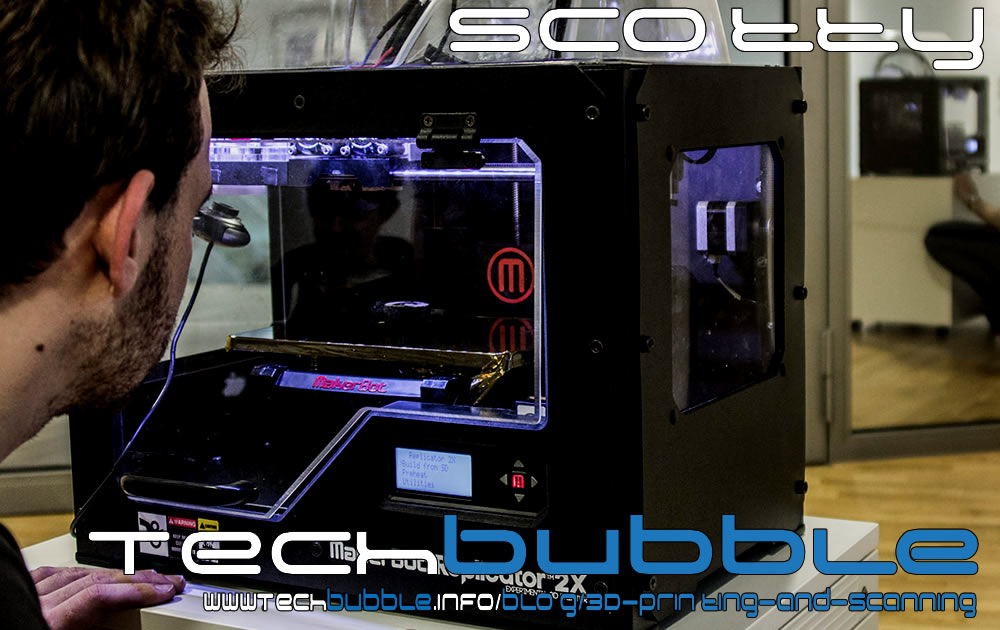
Scotty, the not quite teleportation system that is still very cool!
Adam Milton-Barker | Feb 4, 2015 | 3D Printing and Scanning | 3480Although the creators of Scotty at the Hasso Plattner Institute in Germany claim it to be a teleportation system, it is actually not, but that doesn't mean that it isn't a very cool and clever piece of technology. Scotty, named after the technician from Star Trek, is actually an advanced replicating system that breaks down and destroys an object at point A and sends it to point B where it is reconstructed using 3D Printing. Although this is the same sort of idea as teleportation it isn't true teleportation. Teleportation requires advanced Quantum Physics and has been successfully carried out in the Netherlands where scientists have teleported an atom from one place to the other, but our current knowledge of Quantum Physics leaves us a long way from anything close to the teleportation we see on TV and in the movies, but trust me, it is coming. Anyway back to Scotty, so how does it work ? Basically the system is a combination of two cleverly modified 3D printing units that have been combined with a milling machine, a micro controller and a camera. How it works is when an object is placed in unit A and told where to send, the milling machine begins to break down the object layer by layer as the camera takes detailed photos of the layers. The micro controller, similar to the Intel Galileo board I develop on, then encrypts the data and sends its to the receiving printer where it is reconstructed by being 3D printed, the original is completely destroyed. At this point only single plastic items can be reproduced and they have to be coated in black paint so that the scanner can get the detail required to produce an exact replica at the destination. Although Scotty is not true teleportation, the comments on the YouTube video ( below ) are quite ignorant to the work and planning that will have gone into developing this technology and I believe that credit is due to the techs at the Hasso Plattner Institute for their hard work and enthusiasm. Although some comments say that there is no real world application that can benefit from this type of technology, I agree that at the very least, this system could revolutionize selling sites such as Ebay where items could be chosen and sent in minutes, keeping the authenticity of each individual item. I hope to see more progress from this project and look forward to seeing the advancements and new ideas for the technology. Check out the images and videos below for more info....
